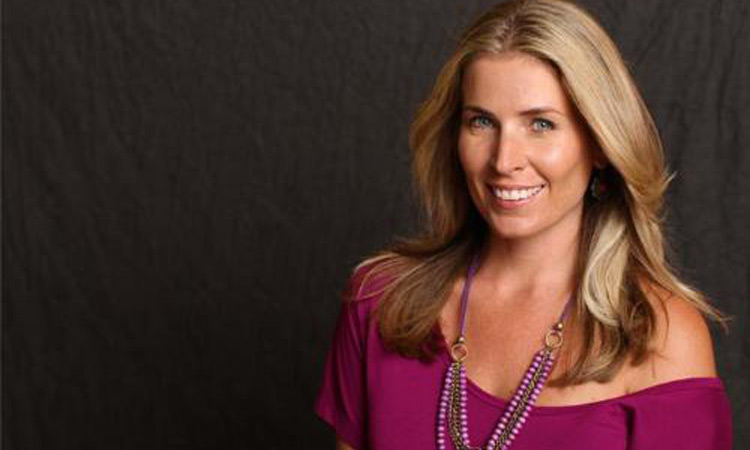
Dr Kat Van Kirk is a clinical sexologist and licensed marriage and family therapist who has been practicing psychology for more than 10 years. With a doctorate in human sexuality and clinical sexology, she is also an associate professor at the Institute for the Advanced Study of Human sexuality and an adjunct professor at Hawaii’s Akamai University.
Rewireme.com caught up with Dr Kat to talk about trust, cheating, breakups and intimacy.
How do you know when you’re in love?
Being in love is a very subjective experience. The sensation can be based on previous relationships, how you were raised, other relationship models, and emotional maturity. When I’m working with clients, I try to explore with them positive ways in which the relationship makes them feel, their ability to be vulnerable and trust the other person and evaluate how compatible they are.
We also discuss the difference between a healthy and unhealthy love and of course, love versus lust. On the surface, someone’s experience may be very similar but once we discuss the above we can often clarify what love is for someone and the potential viability of the relationship.
Roles are changing in marriages, where now stay-at-home dads and women in the workforce are getting more common. What are the main challenges faced in trading traditional roles?
There can often be confusion not only in regards to who does what logistically but also in regards to the emotional life of the couple, nurturance, initiation, the pressure to provide and protect. There is a much more egalitarian approach to relationships but I see some couples struggle with the cultural expectation versus how they were raised. This can lead to feelings of emasculation, stress, confusion and arguments.
Overall, it’s a very positive development in our culture but I believe as we evolve towards a more integrated and egalitarian society, these are some of the growing pains we are experiencing.
In this digital age with texting and emails, is the issue of trust becoming more of a problem between partners? Do you find yourself advising clients on how to not be jealous?
There are certainly more opportunities to connect with other people now than ever before. However, jealously has always been a common issue in relationships. If anything, if there is cheating occurring, I feel as though there are more ways to be caught now as well. I think part of the issue is also related to more egalitarian relationships between men and women and the increase in opposite sex friendships that occur more now than ever. I think we as a culture are still adjusting to this idea. Therefore, in therapy I work with couples with jealousy issues around these social developments as well as self-esteem issues, which has always been what most jealousy boils down to.
What’s the best way for couples to create and keep intimacy in a marriage that can be distracted by work or children?
Staying emotionally and physically connected can be challenging in this very demanding world. Ultimately, couples have to learn to prioritize their relationship over work and yes, even children. If the couple-hood isn’t nurtured, the relationship has a much higher chance of breaking down, just like a car that doesn’t get regular maintenance.
Too many people expect their relationship to go in automatic pilot and just take care of itself in the middle of life’s demands. I coach couples to make time for themselves, figure out how they express love to one another and make time for opportunistic sex. Small changes can really improve a relationship greatly.
Cheating happens and it seems to be becoming more and more prevalent in today’s relationships. Can you teach us how to rebuild trust in a relationship? Is it even possible?
Yes. It’s becoming more and more prevalent to see infidelity in marriages not because people are unhappy with their spouses but because they are looking for a new version of themselves. In my book, The Married Sex Solution: A Realistic Guide to Saving Your Sex Life, I discuss how partners tend to put one another, and themselves, in these very small boxes when it comes to identity.
In addition, your one life-long partner is supposed to provide you with everything you would ever need. It’s the idea that we have to be completely merged with only one person that is the cause of much infidelity. In therapy, we can work through those issues and find a way to renew damaged marriages so that it is more differentiated and healthy, and truthfully, better than ever.
The newest Hollywood trend seems to be “conscious uncoupling.” Do you teach your clients how to breakup with someone you love? And what are your best techniques for how to get over a breakup?
Often relationship therapy involves how to uncouple in as healthy a way as possible. I know celebrities have gotten some flack about that term but we as therapists have been advocating for break ups like that for years. I don’t believe it is a matter of getting over a break up, but more about managing the logistics and emotions of making this life transition.
When it comes to sex and intimacy, many couples find it hard to discuss their needs and desires. What tips can you give our readers?
There are many ways to communicate exactly what you want from your partner. Know what you want first. Be sure that you are paying attention to what excites you. You need to be familiar with your body and how it works before you can expect someone else to. Communication is the best way forward.
For more advice by Dr Kat go to DrKat.com
Click here to see Rose’s tips for healthy and happy relationships
